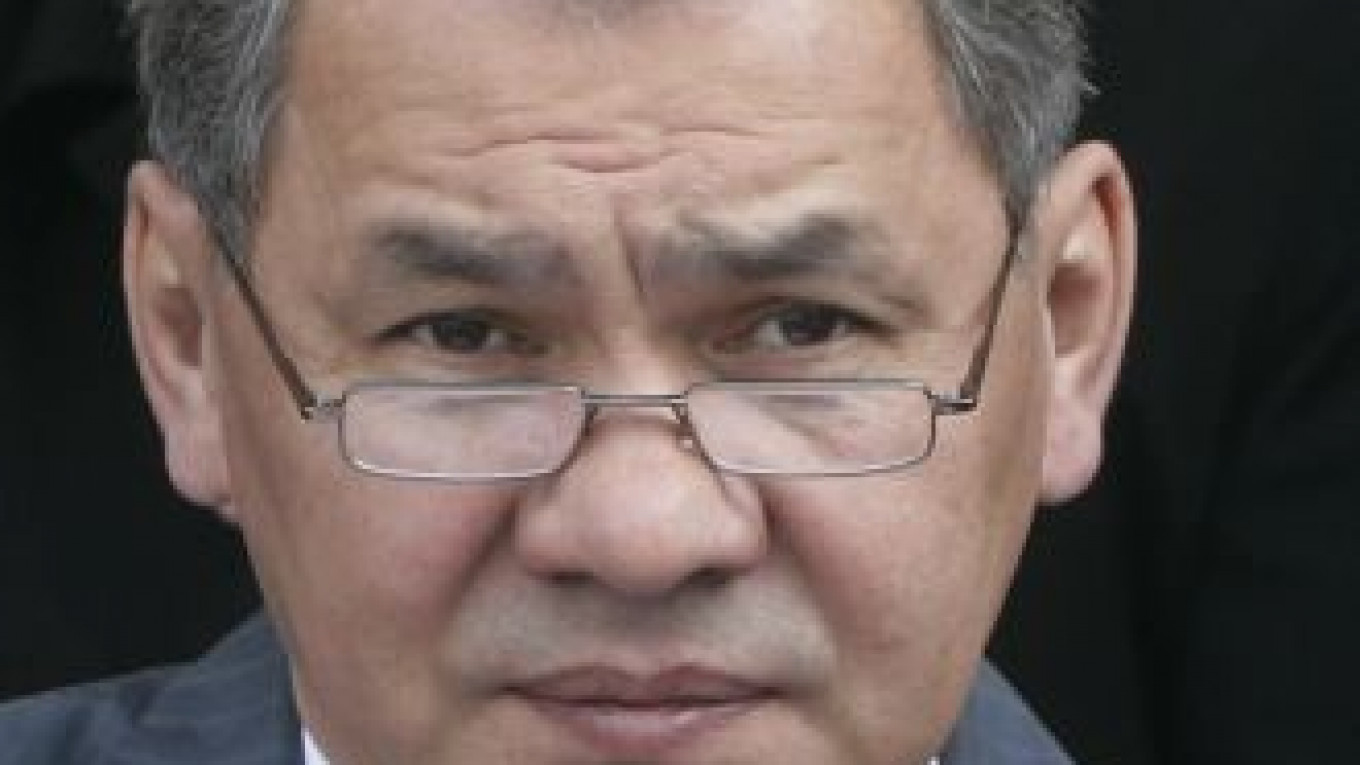Moscow region Governor Sergei Shoigu wants at least 170 billion rubles ($5.3 billion) from federal coffers over three years for the upkeep of transportation infrastructure in the region.
Regional authorities say they need the money to overcome a growing backlog of unfinished road building and repair projects.
"We have 40,000 kilometers of road, of which only a third are in normal condition," chairman of the regional government Andrei Sharov told Vedomosti late last week. "There will be around 24 billion rubles in the road fund by the end of the year. Another 12 billion for federal roads will come from the federal budget. That's clearly not enough," he added.
The sum Shoigu has requested is about equivalent to the deficit facing the project to develop the Moscow transportation hub.
Presidential spokesman Dmitry Peskov said the governor's request was being "worked on."
Shoigu has not been shy about demanding financial support from the Kremlin since he was appointed governor of the Moscow region this spring.
He has previously demanded compensation for 25 billion rubles a year in losses of revenues connected with the transfer of large swathes of the region to the city as part of the expansion of the capital. ?
He also asked for a cancellation of the region's 31.6-billion ruble debt.
Earlier this month it was reported that Shoigu was seeking to take control of construction of the 240 billion ring road project to create a 443-kilometer circular road in the region.
The federal government has earmarked 168 billion rubles to the project. Some critics have called the road, which would be constructed largely by linking existing highways in the Moscow region, as an unnecessary luxury.
Shoigu's latest request won endorsement from one of the country's main accounting watchdogs on Friday.
Sergei Stepashin, chairman of the Federal Audit Chamber, said at a meeting of the control and accounting bodies of the Moscow region that he backed the request.
"Sergei Shoigu has put an important question before the Federal Government about the allocation of additional funds for the construction of roads in the region. I'll tell you straight, I support him. Shoigu can count on the support of the Federal Audit Chamber," Stepashin said, RIA-Novosti reported.
Meanwhile, another of Shoigu's proposals to help finance the region's budget is meeting resistance.
Early last month the governor proposed charging a flat fee of 30 percent of the new cadastral value of a land plot — which is expected to be close to its real market value — in the event that an owner wants to change the status of the plot, for example, from protected woods to an area where construction can be carried out. Such a measure would require approval from federal authorities and changes to the Tax Code.
But Izvestia said that Shoigu's idea is not getting high-level support. According to a cabinet report delivered to President Vladimir Putin, which the newspaper obtained a copy of, it is not possible to firmly establish the value of a land plot prior to converting its status, yet the fee needs to be paid prior to its conversion. This overall problem is one specific to the Moscow Region, and Shoigu's proposal could cause issues on the land markets of other regions.
Related articles:
A Message from The Moscow Times:
Dear readers,
We are facing unprecedented challenges. Russia's Prosecutor General's Office has designated The Moscow Times as an "undesirable" organization, criminalizing our work and putting our staff at risk of prosecution. This follows our earlier unjust labeling as a "foreign agent."
These actions are direct attempts to silence independent journalism in Russia. The authorities claim our work "discredits the decisions of the Russian leadership." We see things differently: we strive to provide accurate, unbiased reporting on Russia.
We, the journalists of The Moscow Times, refuse to be silenced. But to continue our work, we need your help.
Your support, no matter how small, makes a world of difference. If you can, please support us monthly starting from just $2. It's quick to set up, and every contribution makes a significant impact.
By supporting The Moscow Times, you're defending open, independent journalism in the face of repression. Thank you for standing with us.
Remind me later.


